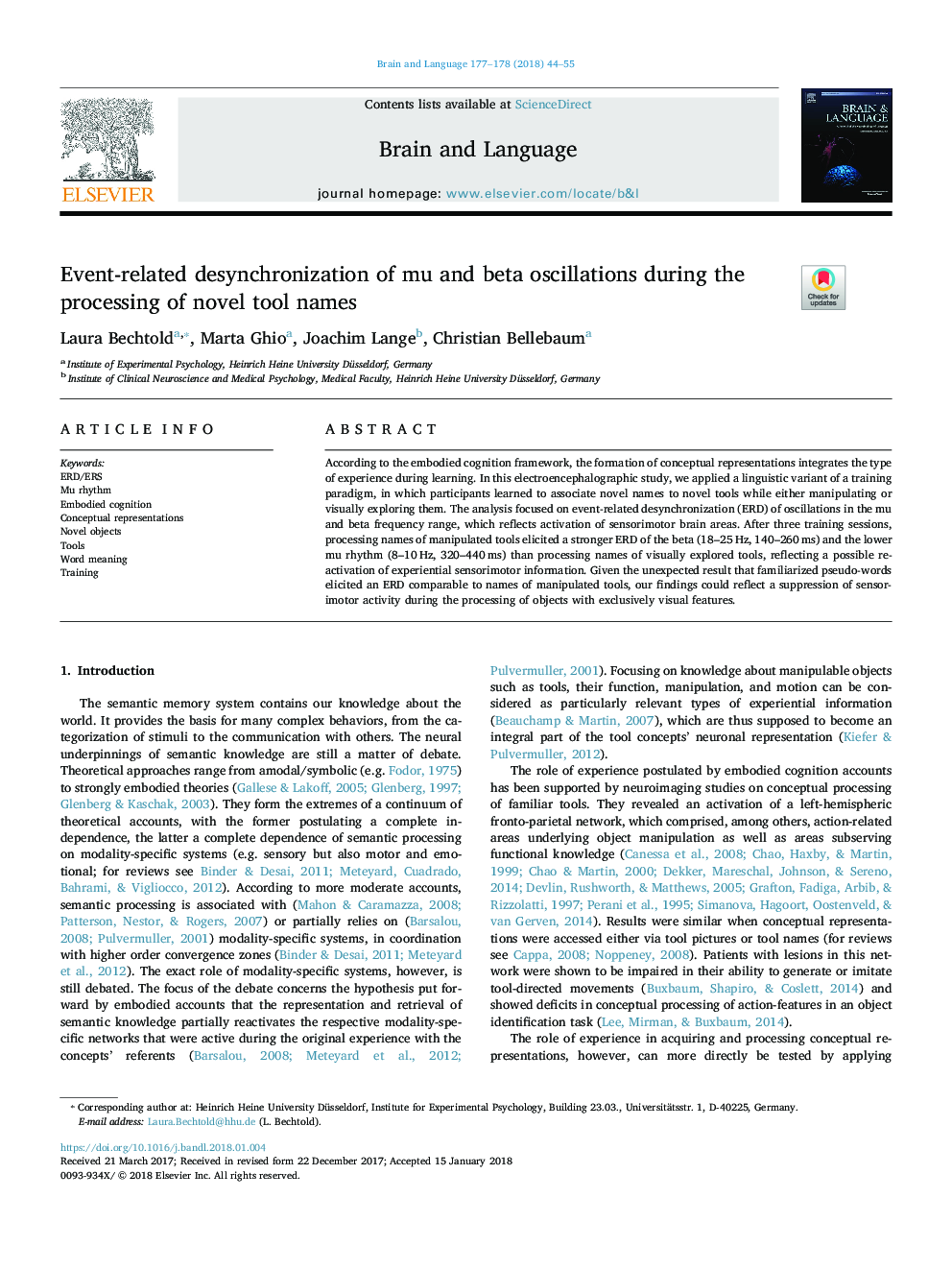| Article ID | Journal | Published Year | Pages | File Type |
|---|---|---|---|---|
| 7283617 | Brain and Language | 2018 | 12 Pages |
Abstract
According to the embodied cognition framework, the formation of conceptual representations integrates the type of experience during learning. In this electroencephalographic study, we applied a linguistic variant of a training paradigm, in which participants learned to associate novel names to novel tools while either manipulating or visually exploring them. The analysis focused on event-related desynchronization (ERD) of oscillations in the mu and beta frequency range, which reflects activation of sensorimotor brain areas. After three training sessions, processing names of manipulated tools elicited a stronger ERD of the beta (18-25â¯Hz, 140-260â¯ms) and the lower mu rhythm (8-10â¯Hz, 320-440â¯ms) than processing names of visually explored tools, reflecting a possible reactivation of experiential sensorimotor information. Given the unexpected result that familiarized pseudo-words elicited an ERD comparable to names of manipulated tools, our findings could reflect a suppression of sensorimotor activity during the processing of objects with exclusively visual features.
Keywords
Related Topics
Life Sciences
Neuroscience
Biological Psychiatry
Authors
Laura Bechtold, Marta Ghio, Joachim Lange, Christian Bellebaum,
